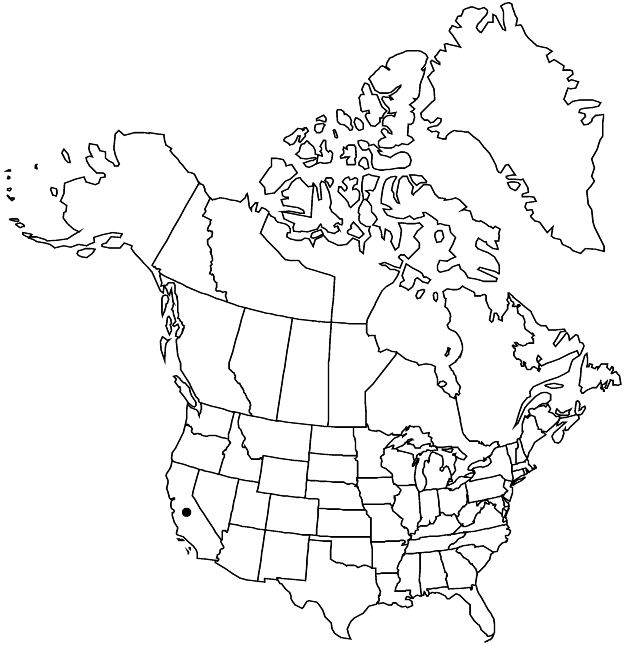Ceanothus dentatus
Fl. N. Amer. 1: 268. 1838.
Shrubs, evergreen, 0.5–1.5 m. Stems erect, ascending or spreading, not rooting at nodes; branchlets brown to reddish-brown, not thorn-tipped, round in cross-section, rigid, puberulent. Leaves: petiole 1–2 mm; blade flat to cupped, narrowly elliptic to narrowly oblong or linear, 5–16 × 2–8 mm, base obtuse, margins obscurely glandular-denticulate, strongly revolute, glands 14–36, apex truncate to retuse, abaxial surface pale green, villosulous to strigillose, especially on veins, adaxial surface dark green, strigillose, not glandular papillate; pinnately veined, veins not furrowed. Inflorescences axillary or terminal, racemelike, 1.5–3 cm. Flowers: sepals, petals, and nectary deep blue. Capsules 2.5–4 mm wide, not lobed to weakly lobed; valves smooth, crested or not.
Phenology: Flowering Mar–Jun.
Habitat: Sandy soils, slopes, flats, maritime chaparral, cypress and pine forests.
Elevation: 0–50 m.
Discussion
Ceanothus dentatus is a narrow endemic, restricted to the Monterey Bay region. Some specimens of this species have been mistaken for C. papillosus. Papillose glands are restricted to leaf blade margins and are absent from adaxial leaf surfaces in C. dentatus, but are evenly distributed over the adaxial leaf surfaces in C. papillosus. Putative hybrids between C. dentatus and C. griseus have been named C. ×lobbianus Hooker (M. Van Rensselaer and H. McMinn 1942).
Selected References
None.
Lower Taxa
"thin" is not a number.
